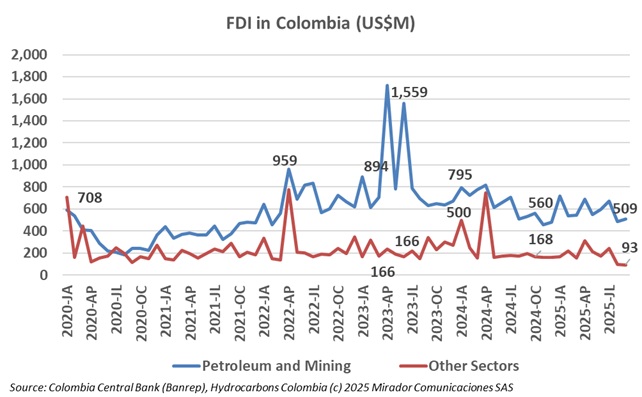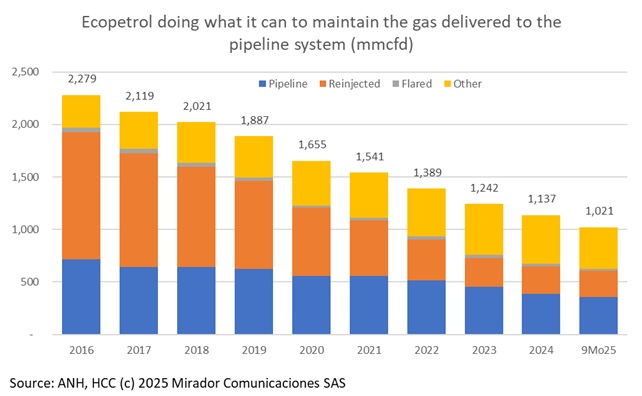
Colombia’s Colombian Petroleum and Gas Association (ACP) president Frank Pearl acknowledged the Petro government presented significant challenges for the oil and gas sector, but emphasized some technical advances occurred despite policy headwinds.
State oil company Ecopetrol assumed sole responsibility for several offshore exploration and production gas projects in Colombia’s Caribbean following Shell’s formal departure as partner in these contracts.
Colombia’s government unveiled comprehensive measures addressing anticipated 2026 gas deficits through coordinated actions with sector agents, the Superintendence of Public Utilities (SSPD), and the Superintendence of Industry and Commerce (SIC).
Colombia’s Energy and Gas Regulatory Commission (CREG) identified two priority regasification facilities—Ballena in La Guajira and one in Buenaventura, Valle del Cauca—as essential for meeting the country’s gas supply needs and controlling end-user tariffs.
We justify our three-week end-of-year vacation by the limited amount of news the industry produces over the period. This year was no exception, at least in the oil and gas sector as strictly defined. However, President Gustavo Petro continues his class warfare. NOTE: See end of article for a brief commentary on this weekend’s events.

Ecopetrol announced a 37% expansion in natural gas supply for Colombia’s residential and commercial sectors, increasing from 133 GBTUd to 182 GBTUd starting December 2025.
Canacol Energy Ltd. announced that it has entered into an agreement with an ad hoc group of holders of the Company’s 5.75% senior unsecured notes due 2028 for debtor-in-possession financing.
While IATA Director General Willie Walsh warned that disappointing progress in Sustainable Aviation Fuel (SAF) production threatens the airline industry’s environmental goals, Colombia emerges as a potentially crucial player to address the global supply shortage.
President Gustavo Petro defended his government’s economic achievements while directly attributing Ecopetrol’s declining profits to the state oil company’s failure to adopt the energy transition he advocates.

Ecopetrol faces mounting production costs as natural field decline in Colombia combines with insufficient incorporation of new projects, reducing profitability per barrel and increasing exposure to international oil price volatility.